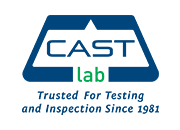What is heat treatment?
In simple terms, heat treatment is the controlled heating and cooling of materials to alter their physical and mechanical properties without changing the shapes of the products.
Where and when is heat treatment required?
Heat treatment is required for piping, structured steel work, pressure vessels, bullet and spherical tanks on refineries, power station, petrochemical plants, oil rigs, shipyards both onshore and offshore and other fabrication works during construction, on maintenance or shutdown period.
What type of materials can heat treatment be done on?
Heat treatment can be applied to certain materials (E.g. Carbon Steel, Low and High Alloyed Steel, Cast Iron Steel, etc.) applicable by the international code.
Are there size limitations? Is there a minimum or maximum size, diameter or material thickness?
Heat treatment can be done to any metal, structure, piping and vessel of any size and thickness as per required by the approved international code (E.g. ASME Section I, ASME B31.3, ASME B31.3, ASME IX, etc.).
What process, method or technique of heat treatment to be used? How long does it take?
It can be done through Localised Heating Method also known as Resistance Heating Technique, Induction Heating Method, Furnace Heating Method and Gas Firing Method. Duration of process will depend on the approved standard code.
What type of heat treatment are there?
Annealing was the first form of heat treatment applied to ferrous metals. It is essentially the softening of a base metal to make it more malleable. The process involves a controlled heating and slow cooling which includes softness. Additionally, the process removes gases, relieves stresses and enhances the mechanical properties in alloyed steels. This is generally performed at temperature around 700°C.
Normalising is much like annealing, but the cooling process is much faster. This result in increased strength but less ductility in the metal. It also produces a higher yield strength with greater tensile strength, and in most instances, a higher impact resistance.
Preheating is a very effective means of preventing weld metal or base metal cracking. It is the application of heat to the base metal prior to a welding or cutting operation. It does not change the properties of the steel, but is advisable under certain conditions to drive off moisture and helps to ensure even expansion to eliminate undesirable stresses. Concurrent heating during welding (also referred to as pre-heating) retards the cooling thus preventing the formulation of an under bead crack.
Post Weld Heat Treatment/Stress Relieving is the heating of steel to a relatively high temperature (e.g. 590°C to 700°C) shortly after welding, and maintaining that temperature for a specific period of time. The purpose is to reduce internal stresses, caused by welding, quench hardening or by cold working. It also has an advantageous effect on the elasticity, ductility and strength of the metal.
Quench Hardening is a process of cooling heated metal to room temperature by immersion in liquid or gaseous cooling medium. This method provides greater strength and hardness than slow cooling, but it is accompanied by brittleness.
Tempering is employed after steels have been fully hardened and are too brittle to be any practical use. Tempering reduces the brittleness and relieves internal stresses. Tempering is actually a re-heating and slow cooling process. The cooling is accurately controlled to impact certain characteristics to the base metal.
What are the other types of Heat Treatment Service that we can do?
a. Polymer clean-out or burnout
b. Refractory curing or dry out.
c. Straightening of Turbine shaft
d. Expansion of Turbine shaft to insert bronze sleeve
What is Hardness Test?
Hardness Testing is a test to determine the resistance exhibits to permanent deformation by penetration of another harder material. It evaluates a material’s properties, such as strength, ductility and wear resistance, and helps you determine whether a material or material treatment is suitable for the purpose you require.
How we can help
CAST Laboratories is experienced in providing various heat treatment services in Singapore, as well as in the Southeast Asia region, for the Construction, Power Station, Oil & Gas, and Shipyard industries.
Feel free to contact us if you need any clarifications regarding heat treatment.





 Member Login
Member Login